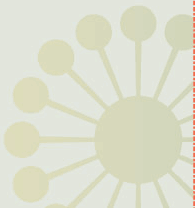HEMLOCK HANGOVER There seems to be some moral ambiguity about the nature of suicide. Dante consigned suicides to the seventh circle of hell where they were transformed into horribly twisted dark trees, continually torn apart by the Harpies. Suicide was considered a sin by the early church because it was contrary to the natural law of self-preservation, according to Thomas Aquinas. More so, it usurped the prerogative of God to end one’s life when God felt it was time. Having suicides form a dark forest where one could easily lose one’s way was indicative of those who were confused by life, threatened by other forces, and deprived of hope. It’s not quite that simple. What constitutes suicide? When Socrates was ordered to drink the hemlock, and Seneca opened his veins in the bath at Nero’s suggestion, did choice play a role in defining suicide? “Suicide by cop” is now a contemporary phrase in which a person causes his own death by making it necessary for someone else to do it. Is it the same as the “assisted suicide” of one who lies in excruciating pain, and death is an act of compassion? Is suicide justifiable when the act is done out of love for one’s family or others to spare them suffering? Does the cause for which one takes one’s own life determine whether it is a righteous or a despicable act? Mark Juergensmeyer, in his book, Terror in the Mind of God, describes the process by which a suicide bomber is recruited by Hamas, trained, and rewarded with the promise that he would receive seventy virgins and seventy wives in heaven, and his family would receive a cash payment worth twelve to fifteen thousand U.S. dollars.” Young men willingly give up their lives for the honor of God, to destroy the enemies of Allah, and to provide for their families. They are honored by their fellow believers, and they believe that they will be equally honored in the afterlife. Aquinas believed that suicide thwarted the will of God and counters one’s reason for being. The corollary is that each person fulfills his or her own destiny, and that ending one’s life may also be part of the plan. The universe is unfolding as it should. As in many other cases, the situation and the intention of the person aggravates or mitigates the act. The terminally ill patient who ends one’s life to avoid intense pain, the billionaire who jumps to his death in a depressed state because his stock portfolio lost a million, the martyr who dies as a witness to his faith, the terrorist who destroys other lives as well as his own—all will face the judgment of their own acts based on how they interpret the meaning of universal love and how other more enlightened souls will help them frame the context of their lives. The issue is that when one confronts the record of his or her earthly existence in the afterlife, how is the judgment made and how does one react to it? I would think that many who take their own lives may face the confusion, sense of guilt, remorse, disorientation that Dante allegorized in The Divine Comedy. But I also believe that a loving God would act with kindness, mercy, and compassion to help those who have gained the afterlife by violence see and understand what has happened to them and those who have been affected by their deaths. It is commonly stated that “seeing is believing.” I think it is just the opposite. “Believing is seeing.” What we believe we will encounter in the afterlife is what we will encounter, until loving souls surround us with compassion and help us to alter our beliefs. Pamela Rae Heath and Jon Klimo have provided a useful analysis in their book, Suicide: What Really Happens in the Afterlife. Dr. Harry L. Serio |
|
